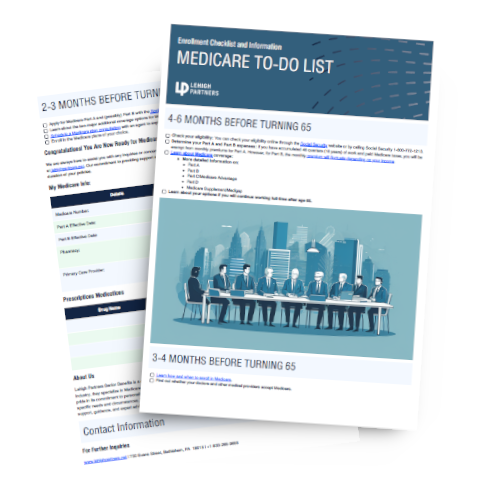If you or someone you know is in crisis, call or text 988 or chat 988lifeline.org.
Call 911 if you're in immediate medical crisis.
Empowering Seniors to Deal with Depression, Isolation, and Loneliness
Depression, isolation, and loneliness are interwoven challenges that many seniors face, significantly impacting their overall well-being. In this article, we will explore the common causes behind these issues among older adults and provide empowering strategies for self-help to navigate these complex emotions.

More than two million of the 34 million Americans age 65 and older suffer from some form of depression
Understanding the Common Causes:
- Loss and Grief: Experiencing the loss of loved ones, friends, or significant life changes can trigger feelings of sadness and grief, which can develop into depression if not adequately addressed.
- Chronic Health Conditions: Dealing with chronic illnesses, limitations, or disabilities can lead to frustration, loss of independence, and a sense of isolation, all contributing factors to depression.
- Social Isolation and Loneliness: Reduced social interactions due to retirement, geographical barriers, or limited mobility can lead to feelings of loneliness and isolation, which may exacerbate depressive symptoms.
- Lack of Support: A lack of emotional support from family, friends, or community networks can contribute to feelings of isolation and increase the risk of developing depression.
Strategies for Self-Help:
- Seek Professional Help: Recognizing the signs of depression, such as persistent sadness, loss of interest, changes in sleep or appetite, is crucial. Seniors should consult healthcare professionals, therapists, or counselors who can provide an accurate diagnosis and recommend appropriate treatment options.
- Build a Support Network: Actively cultivate connections with family, friends, or support groups. Engage in regular communication with loved ones and seek opportunities to meet new people with similar interests.
- Engage in Meaningful Activities: Participating in activities that bring joy and a sense of purpose can alleviate depression and counter feelings of isolation. Join clubs, take up hobbies, or volunteer, fostering social connections and building a sense of fulfillment.
- Utilize Technology for Connection: Embrace technology to bridge geographic barriers and maintain or establish connections. Use video calls, social media platforms, or online communities to stay in touch with loved ones, participate in virtual events, and engage with like-minded individuals.
- Prioritize Physical and Mental Health: Adopt a holistic approach by incorporating regular physical exercise, nutritious eating habits, and practices that promote mental well-being. These lifestyle choices can positively impact mood and overall mental health.
- Consider Therapeutic Interventions: Explore therapeutic modalities such as cognitive-behavioral therapy (CBT), art therapy, or mindfulness practices. These interventions can help seniors develop coping mechanisms and provide tools for managing depressive symptoms.
- Engage in Self-Care: Prioritize self-care activities that promote relaxation and self-compassion. Engaging in activities such as reading, listening to music, practicing meditation, or pursuing hobbies can help reduce stress and enhance emotional well-being.
Depression, isolation, and loneliness can significantly impact the lives of seniors, but there are empowering strategies available to help navigate these challenges. By seeking professional help, building a support network, engaging in meaningful activities, prioritizing physical and mental health, and practicing self-care, you can take proactive steps toward improving your emotional well-being. Remember, no one has to face these challenges alone, and seeking support is a sign of strength and resilience.
The symptoms of depression can manifest differently from person to person, but some common indications include persistent sadness, loss of interest or pleasure in activities, changes in appetite or weight, sleep disturbances, fatigue or lack of energy, feelings of worthlessness or guilt, difficulty concentrating or making decisions, restlessness or irritability, and physical symptoms like headaches, digestive problems, or body aches12.
If an individual experiences several of these symptoms for an extended period, most of the day, nearly every day, for at least two weeks, it may suggest the presence of depression3.
Can Medicare Help with Depression, Isolation and Loneliness?
Medicare offers coverage for certain mental health services that can be beneficial for seniors dealing with depression and isolation. Medicare Part B provides coverage for outpatient mental health services, including one depression screening per year. This screening allows individuals to assess their mental health and identify possible signs of depression early on. Additionally, Medicare Part B covers counseling and psychotherapy services delivered by doctors, psychologists, or licensed mental health professionals1.
For more comprehensive coverage, individuals can explore Medicare Advantage Plans (Part C) offered by approved private insurance companies. These plans often include additional benefits beyond original Medicare, such as mental health services and support for isolation3.
It's worth noting that Medicare may also cover partial hospitalization services for mental health conditions like depression. Partial hospitalization entails structured therapy programs provided during the day and can be an effective treatment option for those needing more intensive care than outpatient services but not requiring full inpatient hospitalization2.
Remember, Medicare coverage plans can differ based on location and insurance providers, so it's advisable to consult official Medicare resources or speak with a Medicare representative to obtain accurate and up-to-date information tailored to your specific circumstances.
Sources:
Mayo Clinic - Depression (major depressive disorder) - Symptoms and causes ↩ ↩2
Medical News Today - 14 common signs and symptoms of depression ↩ ↩2
National Institute of Mental Health (NIMH) - Depression ↩ ↩2
The information provided in this article is for general purposes only and should not serve as a substitute for professional advice. Seniors seeking guidance on depression, isolation, and loneliness should consult with healthcare providers, therapists, or other qualified professionals who can tailor recommendations to their specific circumstances.

